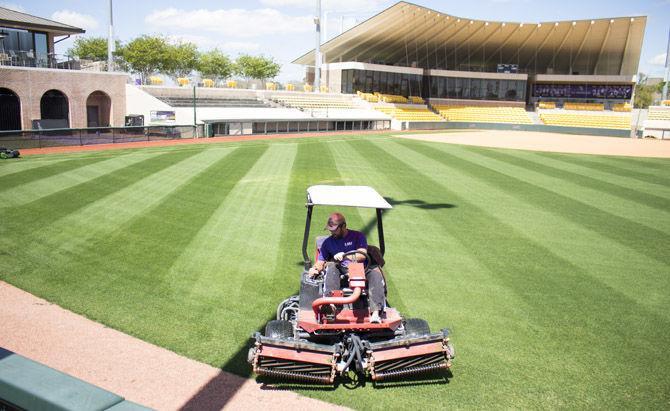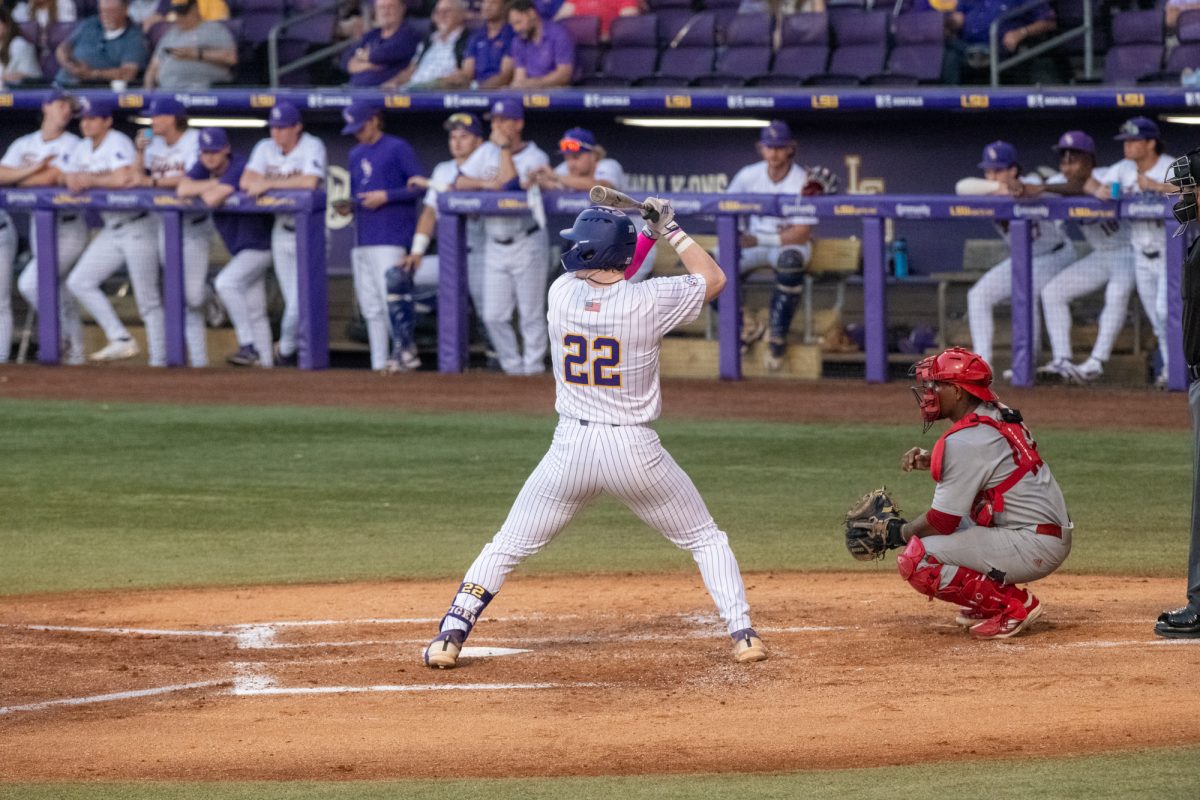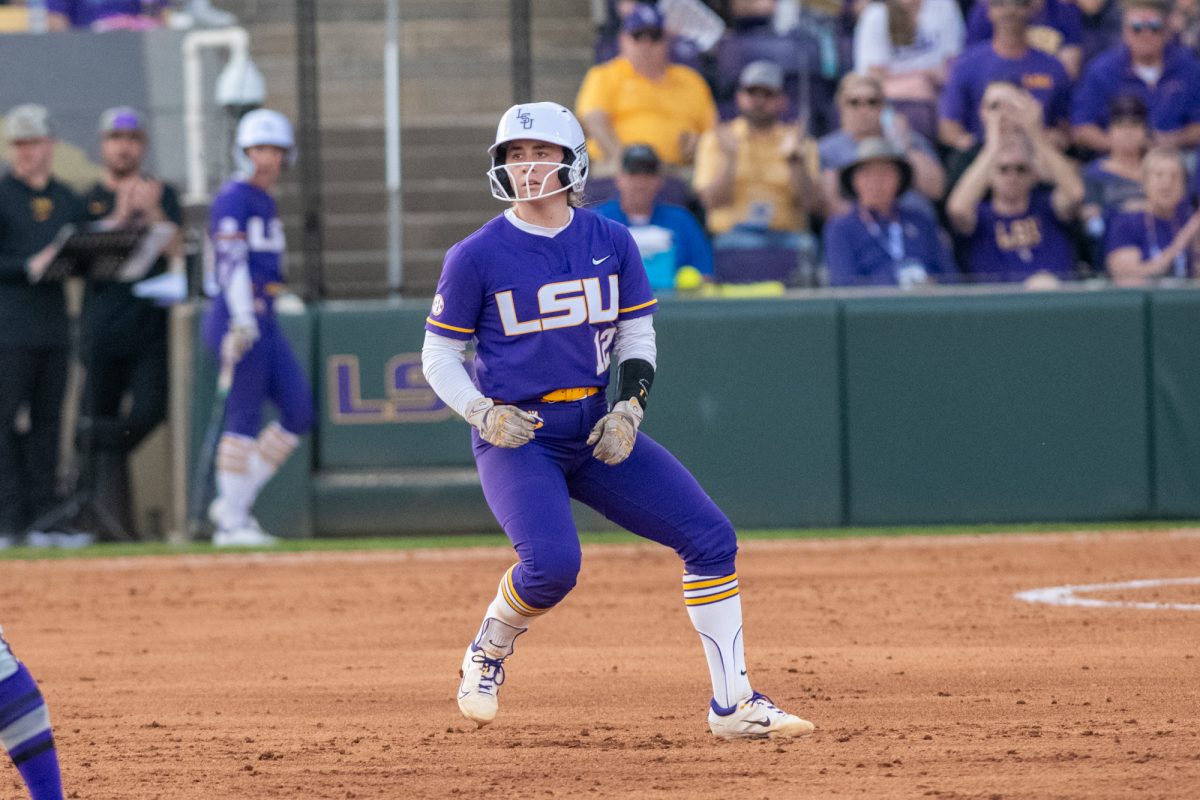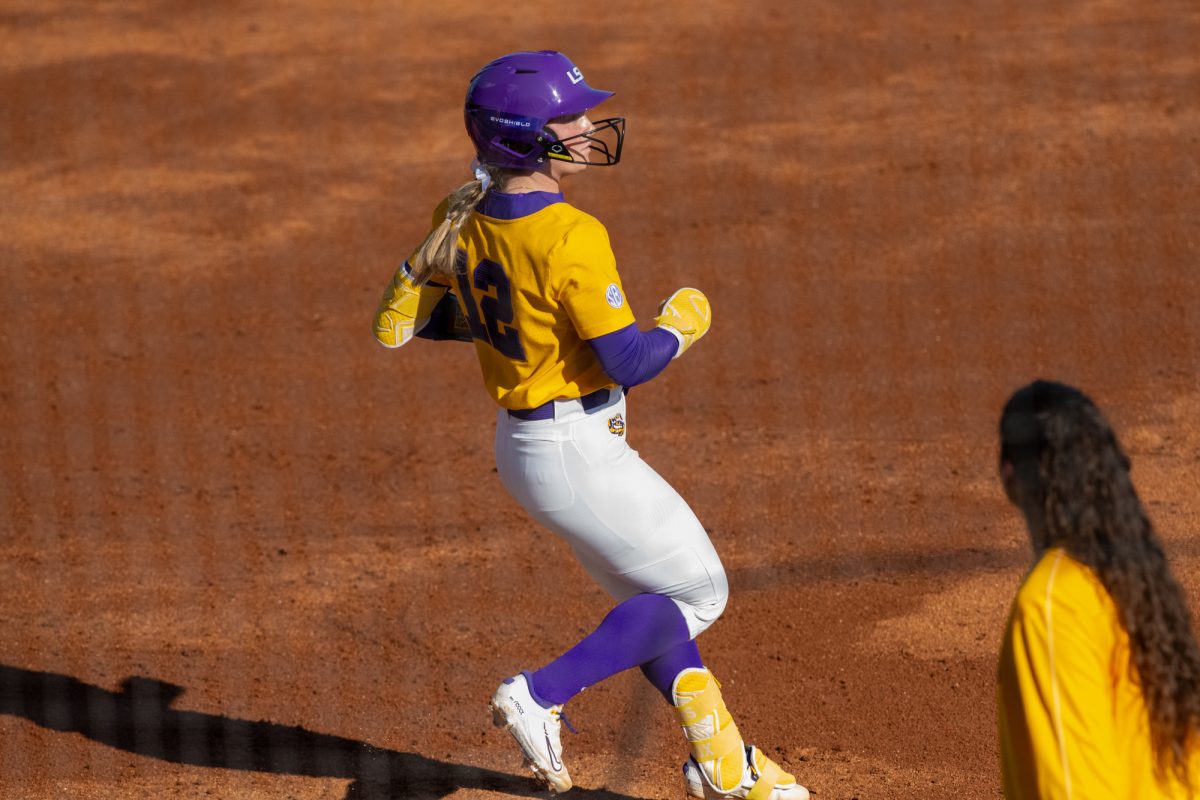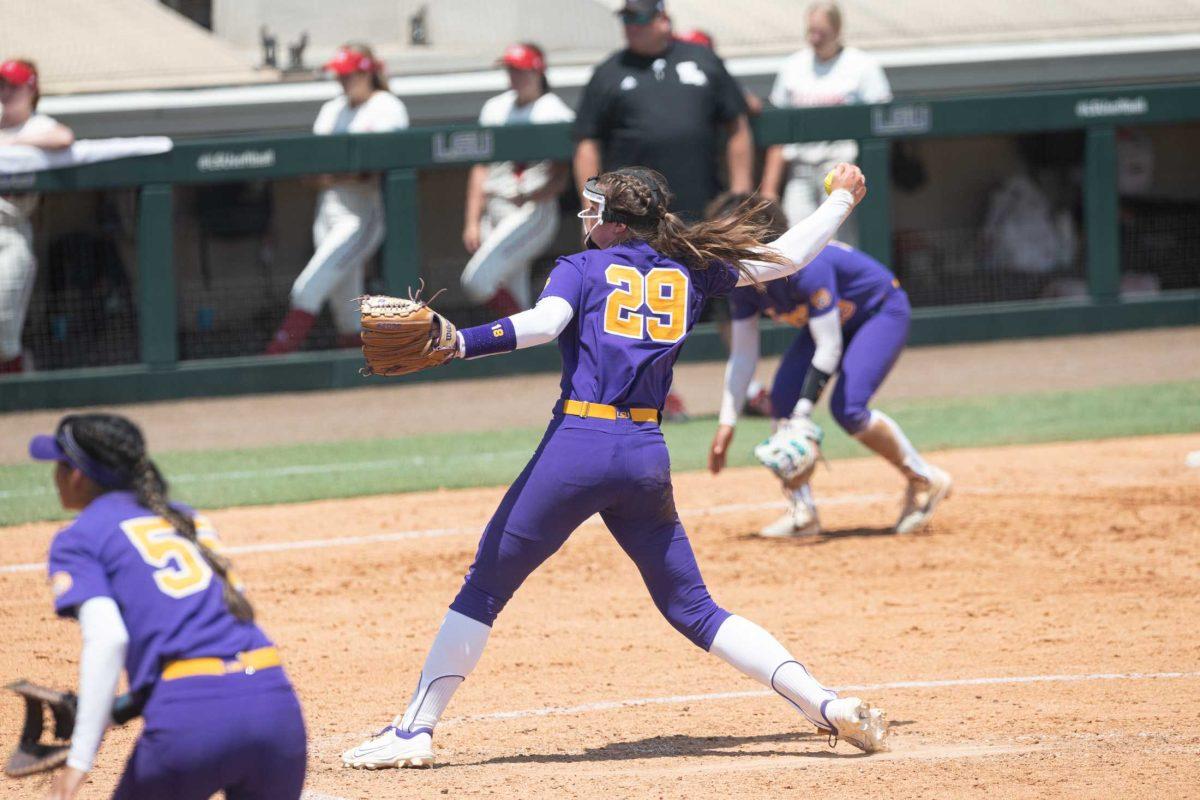Tiger fans know the success achieved by LSU coach Beth Torina’s softball team in recent years, but an important facet of the Tigers’ success is often overlooked—the field itself.
Standing on the outfield terrace, the outfield looks like a high-end golf course.
Its grass is perfectly cut in a line pattern at two and three quarters of an inch, only disrupted by the spots where outfielders stand. The infield sits perfectly flat, without a single footprint.
Since its opening in 2009, Tiger Park has been known around the softball world as a top-tier stadium.
In 2013, The Sports Turf Managers Association honored Tiger Park with the Field of the Year award for the college softball division.
Tiger Park’s grounds crew, led by sports turf manager Ben Wilson, works behind the curtains to keep the park in excellent condition. The crew consists of four men who often work more than 50 hours a week, according to Wilson.
“They give us opportunities to play games when we shouldn’t,” Torina said. “They do a good job.”
The methods used to maintain Tiger Park’s appearance are long and meticulous,
especially the outfield.
“It’s a process that never ends,” Wilson said. “[We are] always looking at it and always trying to make it better. It’s very detail-oriented.”
In the outfield, the groundskeepers start by putting in the pattern of the grass, and then fertilizer is applied weekly. The crew will then “spoon feed” the grass with bits of nitrogen and aerate the field accordingly.
On Fridays before a game, the crew will complete the finishing touches on the field, such as leveling the infield and drawing in the foul lines.
“I have a couple goals [for the field],” Wilson said. “I want to make it safe for the players. That’s the number one objective out of all of this. Number two, I want to make it look as good as it possibly can and aesthetically pleasing to the fans. It’s just a general grind.”
Torina referred to the grounds crew as heroes by making Tiger Park suitable for play when weather conditions make it challenging in last year’s regionals.
“I think the grounds crew’s role was the biggest in the regionals last year when we were able to play all those games in that rain,” Torina said. “They were able to really get it done for us. They were the heroes there. They do a lot. They work hard.”
When LSU hosted the Regional Tournament last year, heavy rains drenched the field at Tiger Park, and at one point, the outfield grass wasn’t visible because of the buildup. In just three hours, the grounds crew made the field playable.
“We had to put the tarp on the infield,” Wilson said. “The field took a lot of water. So the next morning, we came in at 6 a.m. and pulled the tarp off
because it had stopped raining.”
“The back arch of the infield was completely drenched. It was pretty hectic. We had a game at 9:30 in the morning. At that time, the field was unplayable, and it was 6 [a.m.]. So we scrambled to get the field squared away and dried up as quick as we possibly could. That was the most hectic day I’ve had.”
Days like that in Baton Rouge are inevitable, but luckily Tiger Park has Wilson and his crew working tirelessly day in and day out to keep it enjoyable for both fans and players.



